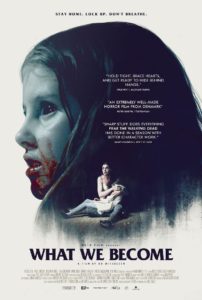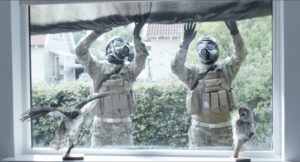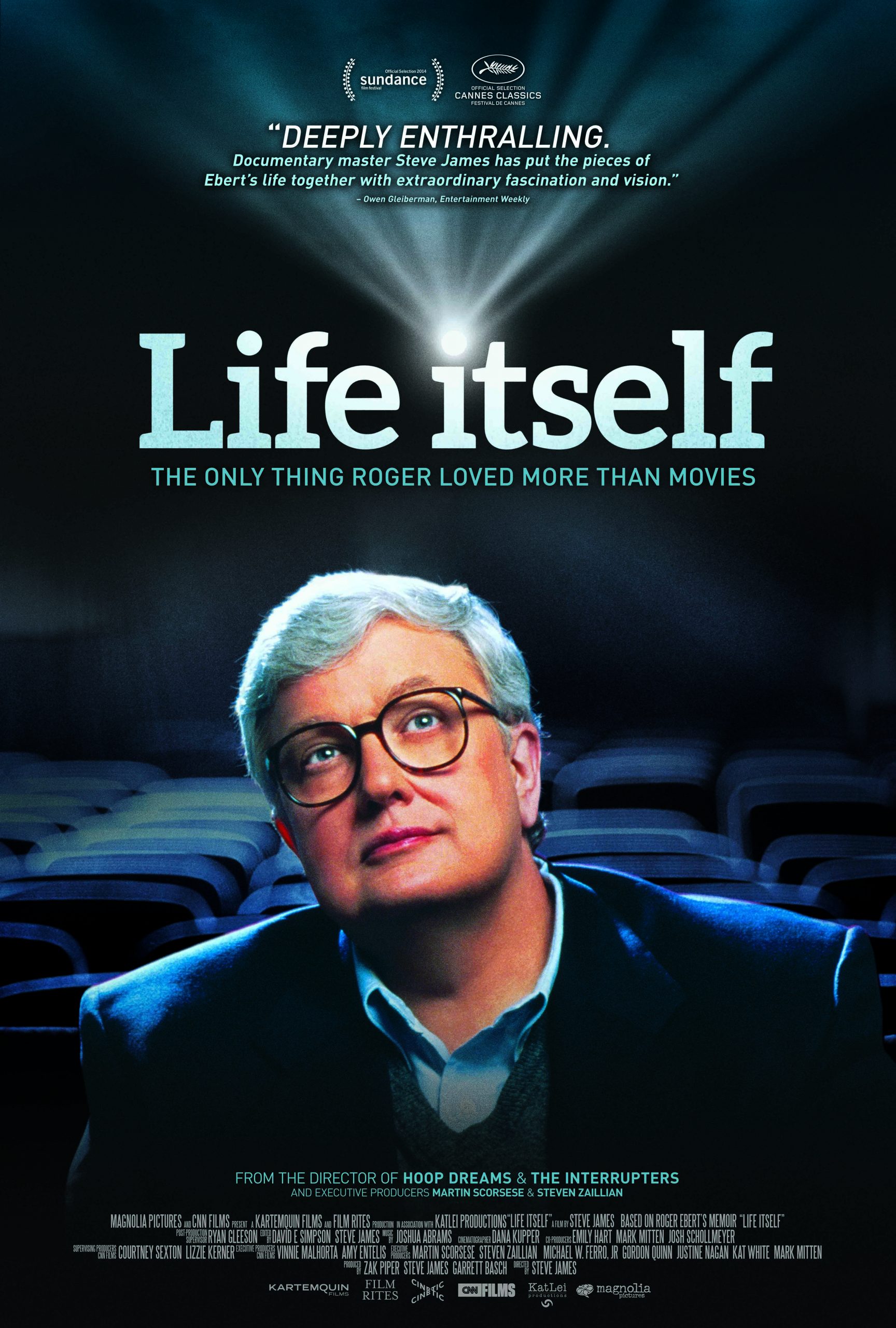 Earlier this year, we saw Norwegian director Roar Uthaug take a well-worn disaster move formula and transform it into something truly special in The Wave; and now, making his feature-length directorial debut, Danish writer and director Bo Mikkelsen accomplishes a similar feat with his apocalyptic zombie film, What We Become.
Earlier this year, we saw Norwegian director Roar Uthaug take a well-worn disaster move formula and transform it into something truly special in The Wave; and now, making his feature-length directorial debut, Danish writer and director Bo Mikkelsen accomplishes a similar feat with his apocalyptic zombie film, What We Become.
Primarily centered around a small family in a quiet Danish neighborhood, in many respects, What We Become stays faithful to the narrative beats and tropes of the genre. Dino (Troels Lyby) and Pernille (Mille Dinesen) have a marriage on the rocks, an angsty teenage son, Gustav (Benjamin Engll), who has an eye for the new girl across the street, and an adorable daughter, Maj (Ella Solgaard). Homeostasis is short-lived, however, as this family of four begins to notice some unusual happenings interrupting their traditional suburban lifestyle: an elderly man goes missing from the neighborhood; Gustav and his would-be girlfriend Sonja (Marie Hammer Boda) find a mutilated deer carcass in the woods. Shortly thereafter, the military arrives and the entire neighborhood is quarantined. Forced to stay indoors, the family watches through windows as soldiers carrying automatic weapons and wearing gas masks march through the streets, coving homes in black tarps and inspecting citizens for signs of infection. Shrouded in the darkness of their own home, Dino, Pernille, Gustav, and Maj must find a way to survive this plague and its undead victims.
In What We Become, writer/director Bo Mikkelsen adopts a more restrained, contemplative approach to the zombie flick than they typical big-budged, effects-laden Hollywood fares that have become commonplace in the modern cinematic market. Fans of World War Z (2013) will need to look elsewhere for a globetrotting plot and a grand sense of scale; Pride and Prejudice and Zombies (2016) devotees (Do such people exist?) won’t find epic action sequences or whatever else the parody mashup allegedly has to offer viewers. And for the most part, What We Become lacks the gore, guts, and squishy sound effects of the ever-popular TV series, The Walking Dead. Mikkelsen’s film is distinct from many other films in its class precisely because it is an intimate, small-scale film—in the vein of George A. Ramero’s genre-defining forerunner, Night of the Living Dead— that is largely concerned with a single family and their response to the zombie apocalypse.
When all hell breaks loose, What We Become is fundamentally a film more concerned with the human beings in the eye of the storm than it is worldwide destruction, gnarly special effects, and endless violence. It is, in other word s, nearly impossible to out-hollywood Hollywood, and it’s quite refreshing to see a film that makes no such attempt. Instead, Mikkelsen uses the characters and intimate setting to explore the double entendre embedded in the film’s title: How do we respond and what do we become in the face of disaster? And indeed one of the more interesting notions that the film explores is the possibility that the governmental response to this virus outbreak is as frightening—or at least as problematic and revealing—as the virus itself. Perhaps we have more pressing problems to which me must attend than the living dead.
s, nearly impossible to out-hollywood Hollywood, and it’s quite refreshing to see a film that makes no such attempt. Instead, Mikkelsen uses the characters and intimate setting to explore the double entendre embedded in the film’s title: How do we respond and what do we become in the face of disaster? And indeed one of the more interesting notions that the film explores is the possibility that the governmental response to this virus outbreak is as frightening—or at least as problematic and revealing—as the virus itself. Perhaps we have more pressing problems to which me must attend than the living dead.
Make no mistake, however, What We Become does conjure up some remarkably effective (and unsettling) character-driven scares and thrills throughout its rather brisk 88-minute runtime. But most noticeably and admirably, it will keep you thinking long after the credits have rolled, which is an impressive feat in an era where apocalyptic zombie movies are a dime a dozen.


